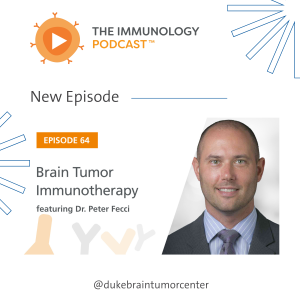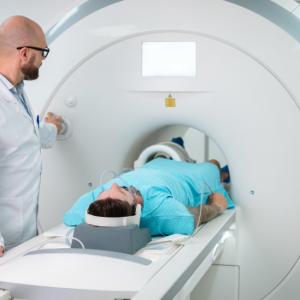"Brain Tumor Immunotherapy" Featuring Peter Fecci, MD, PhD
Sit down with Peter Fecci, MD, PhD, from the Preston Robert Tisch Brain Tumor Center on this week’s episode of the Immunology Podcast, as he talks about his lab’s work in activating T cells to target brain tumors.
Evaluation of fluoxetine (Prozac) and Cytotoxic Lysosomal Stress in Glioma (FLIrT)
Finding therapies that can enter the brain and effectively treat tumors remains a hugely significant challenge for patients with brain cancer. However, recent research published in Cell Reports has shown that fluoxetine (commonly known as Prozac) can both directly damage tumor cells by inhibiting a key metabolic process, as well as potentially make them more sensitive to chemotherapy (temozolomide). Fluoxetine is known to cross the blood-brain barrier and is currently used to treat depression.
What is the Best Treatment for Brain Cancer: Unraveling the Options
Dealing with brain cancer is daunting, but understanding the available treatment options is crucial for patients and their loved ones. Let’s dive into the various approaches used to tackle brain cancer. From conventional treatments like surgery and radiation to innovative therapies that are in clinical trials, we will explore cutting-edge advancements in the field. Let’s begin exploring and unraveling the best treatment options for brain cancer.
Left Brain vs Right Brain: Why Brain Tumor Location Matters
When it comes to brain tumors, their location within the brain plays a crucial role in determining the symptoms, treatment options, and overall prognosis. The brain is divided into two hemispheres: the left brain and the right brain. Each hemisphere is responsible for different functions, and the presence of a tumor in either hemisphere can have distinct effects on an individual's cognitive and physical abilities.
What Is a Glioma Brain Tumor: Everything You Need to Know
Whether you are a patient seeking information about gliomas, a caregiver looking to support a loved one, or simply curious about brain tumor types, we are your trusted go-to resource. Let’s explore glioma brain tumors and what they are as we provide you with valuable insights to foster understanding, hope, and proactive engagement with this medical condition. To learn more about brain cancer, check out our blog “Everything You Need To Know About Brain Cancer.”
Which is Better for Brain Imaging: MRI vs CT Scan
When it comes to brain imaging, two popular imaging methods are widely used: MRI (Magnetic Resonance Imaging) and CT (Computed Tomography) scans. Both techniques provide valuable insights into brain health, but they differ in terms of their technology and diagnostic capabilities.
In this blog post, we will explore the differences between MRI and CT scans, helping you understand which one is better for brain imaging and detecting brain tumors.
Headache: Could It Be a Brain Tumor?
Headaches are a common occurrence that almost everyone experiences at some point in their lives. They can range from mild to severe and can be a common symptom of various factors such as stress, tension, sinus problems, or even dehydration. However, in rare cases, a headache may be a sign of a more serious underlying condition, such as a brain tumor.
Do Brain Tumors Show Up In Blood Work?
When it comes to diagnosing medical conditions, the quest for accurate and efficient methods is of utmost importance. Brain tumors, a concerning health issue, often prompt the question: "Do brain tumors show up in blood work?" Understanding the diagnostic possibilities for brain tumors is crucial for timely intervention and effective treatment.
Will a CT Scan Show a Brain Tumor?
A brain tumor can be a concerning health condition, and when faced with symptoms that raise suspicions, it's only natural to seek answers and explore the available diagnostic options. Today we are tackling the question of whether a CT scan can accurately detect brain tumors.
Keep reading as we delve into the topic of CT scans and their effectiveness in detecting brain tumors, shedding light on the procedure, and mentioning its limitations. Let’s get started!
Can Stress Cause Brain Tumors?
Stress is an inevitable part of life. Whether it's due to work pressure, financial problems, relationship issues, or any other life situation, stress can affect us all. But can stress cause brain tumors? While some people believe that stress can cause brain tumors, others argue that there is no evidence to support this claim.









